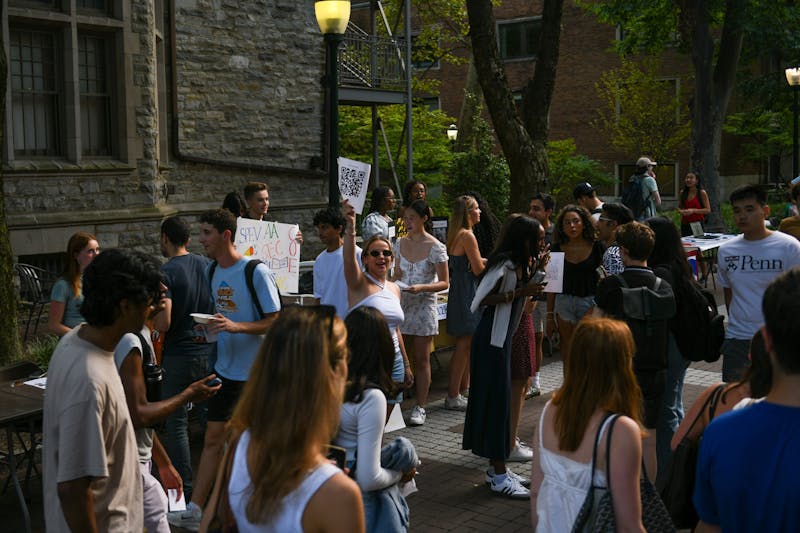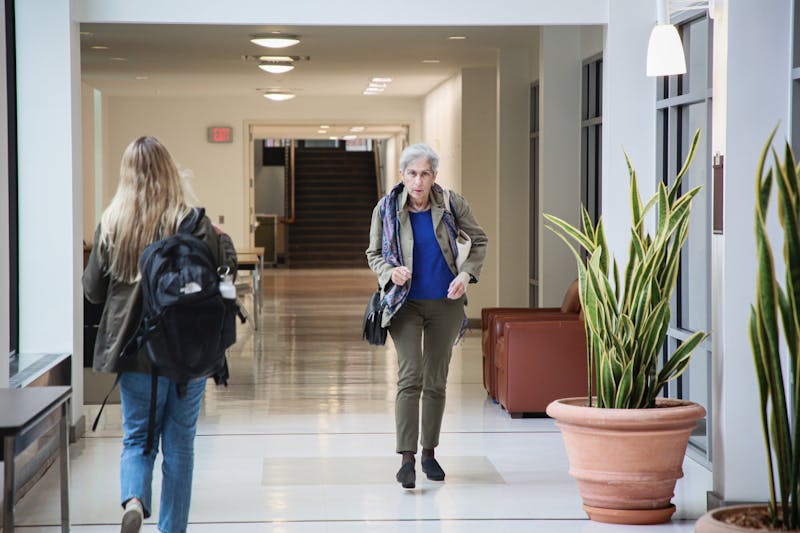
Required by law to have a balanced budget by the end of the fiscal year, the Southeastern Pennsylvania Transit Authority has designed a contingency plan to avoid a projected $62 million deficit, which many experts say is caused by a lack of state funding. This plan includes the elimination of all weekend service, in addition to increased fares.
"The program we have had to lay out, if implemented ... would devastate transportation [and] would have a horrible impact on people's lives," SEPTA Public Affairs Director Richard Maloney said.
SEPTA's proposal, which is viewed as more of a worst-case scenario than a likelihood, would reduce weekday service on all routes by 20 percent and cut 1,400 jobs from the payroll.
The base cash fare would rise from $2 to $2.50, while the price of tokens and passes would undergo an average increase of 25 percent.
With local retail and service industries expected to be negatively affected, Maloney hopes that SEPTA's financial woes will be resolved soon.
"We remain cautiously optimistic that the state will give us the support that we require," Maloney said. "We have been anticipating for some months now and have been told by a number of legislators ... that they will address this issue, [but] far be it from us to predict what they're going to do."
Vukan Vuchic, professor of transportation engineering, believes it is high time that legislators resolve the problem of inadequate transit financing in the best interests of economic progress and quality of life.
"The problem of financing SEPTA has never been solved adequately since it has been founded in the '60s," Vuchic said. "Most other states have established other sources of funding, but Pennsylvania is still limited."
Citing examples such as San Francisco and Atlanta, Vuchic explained that the billions of dollars funding these metropolitan systems came from special fund allocations, including sales or gasoline taxes. Given that tax increases are politically unpopular, it may be difficult to rally support around dedicated funding for public transit in Pennsylvania.
However, advocates of increased funding argue that the Keystone State's comparatively large transit system has not grown to meet the increasing demands of workers, low-income individuals, students, seniors and non-car owners.
"Persons of all incomes now use SEPTA buses and trains. Suburbanites and city dwellers depend on Regional Rail and other suburban services, [and] many families, tourists, school groups and others often prefer to ... use SEPTA trains," Vuchic said.
He underscored University efforts to increase student and staff use of SEPTA and the subsequent reduction of street congestion, as well as a decreased need for parking space.
The Philadelphia Transit Campaign, a coalition of Philadelphia citizens concerned about the issue, has organized a rally for public transit in Harrisburg today to seek support for dedicated funding from Gov. Ed Rendell and the General Assembly.
Recent Penn alumnus Ariel Ben-Amos, a member of the PTC, has been using SEPTA services on a daily basis since seventh grade.
"A healthy, functioning transit system is of the utmost importance for the economic development of the city," the Philadelphia native said, adding that the city's ability to compete on a national level would be severely hampered if SEPTA services are cut. "Thousands of economically disadvantaged workers will lose access to their jobs, churchgoers across the city will not have easy access to Sunday services and the city's economic viability will be damaged."
He said that, though SEPTA does not have a great track record in terms of management and cost-cutting, "public transit is a public good and must be supported as well by the state."
Ben-Amos is pessimistic about the chances of obtaining dedicated funding. Instead, he hopes that SEPTA will be able to continue its service through other means.
"I am hopeful the governor will provide a stopgap of 60 million or so to allow SEPTA to run throughout the year," he said.
The Daily Pennsylvanian is an independent, student-run newspaper. Please consider making a donation to support the coverage that shapes the University. Your generosity ensures a future of strong journalism at Penn.
DonatePlease note All comments are eligible for publication in The Daily Pennsylvanian.







